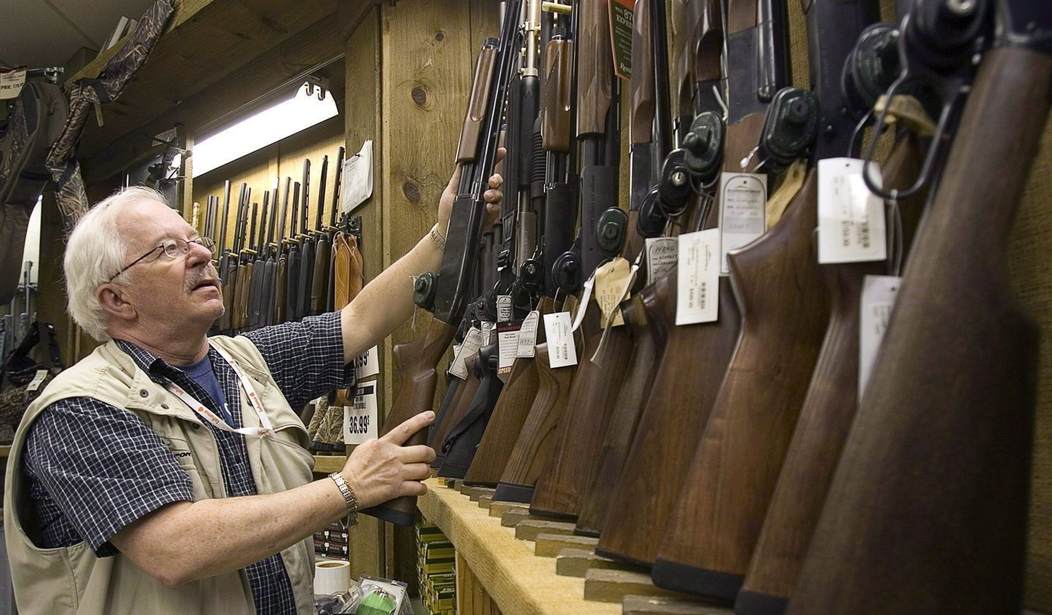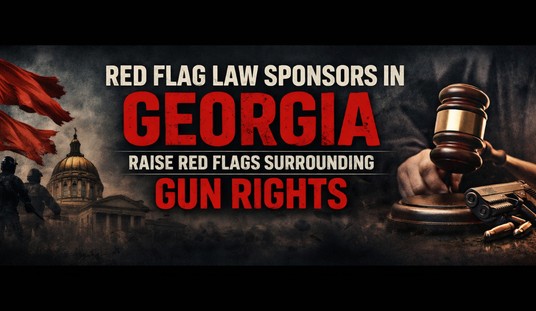At what age do your constitutional rights kick in? When it comes to our freedom of speech, even 14-year olds in high school have at least some First Amendment protections, thanks to Supreme Court decisions like Tinker v. Des Moines. The Court has also recognized the Fourth Amendment rights of minors, at least when it comes to searches and seizures. But the Second Amendment is a different story. When it comes to the right to keep and bear arms (and the ability to acquire them), even young adults are often told that they must wait until they’re at least 21 before they can exercise their rights.
That’s the case in Florida, where after the Parkland shootings in 2018 then-Gov. Rick Scott signed a bill into law that bans the sale of rifles and shotguns to those under the age of 21. Given that the federal government already bans retail sales of handguns for under-21s, this amounts to a near total prohibition on the right to keep and bear arms for young adults.
The NRA sued over the law, but a federal judge recently upheld the statute, declaring that he had no other choice thanks to the Eleventh Circuit Court of Appeals precedent. Now the NRA has officially filed notice of appeal with the Eleventh Circuit, sparking off another round of legal arguments as the case ultimately makes its way up to the Supreme Court.
The argument against Florida’s ban is simple: an entire class of citizens (in this case, those under the age of 21) cannot purchase a firearm for self-protection even though they can carry a firearm in defense of this nation. They can also get married, sign contracts, and serve on juries, but if they buy a shotgun they’re committing a crime. That’s inconsistent with the Supreme Court’s decision in the Heller case, and Florida’s law should be struck down as a violation of the Second Amendment.
In a court document filed last year, however, Attorney General Ashley Moody’s office argued that the law “follows a long tradition of laws conditioning the purchase of firearms on the purchaser’s having obtained the traditional age of majority — 21 years of age.” Also, the document said that while the law prevents people ages 18 to 20 from buying guns, it doesn’t prevent them from having guns that, for example, they received as gifts.
“Florida’s age qualification is reasonably calculated to advance the state’s interest because it applies only to the purchase of firearms,” the filing by Moody’s office said. “Any law-abiding person over the age of 18 may gift, loan or allow the use of a firearm to an otherwise qualified person over the age of 18, who may in turn keep and use that firearm for any lawful purpose, including home defense, hunting, sport and practice shooting. The sale-gift distinction is aimed at a uniquely dangerous problem — the purchase of firearms by 18-to-20-year-olds absent the judgment of a parent, guardian, or other law-abiding adult that the individual is prepared for the responsibility of gun ownership.”
To me, this points out the absurdity of the law. So you can’t buy a gun, even after going through a background check at retail, but if you’re lucky enough to know a gun owner who’ll loan you or gift you a gun you can always get one through them? What about those young adults who don’t know any gun owners, but who want to keep a firearm at home for self-defense? According to the state of Florida, their rights aren’t being violated. They just need to find some generous gun-owning friends.
Of course, the state of Florida can’t guarantee that the judgment of those adults is actually going to be any better than the young adult wanting to acquire a firearm. Additionally, the new law doesn’t prevent young criminals from illegally obtaining a gun, but it does put barriers in front of a young single mother who wants to purchase a shotgun for home defense.
Given the precedent in the Eleventh Circuit, I’m not sure how much success the NRA will have with this next round of appeals. The decision by federal judge Mark Walker upholding Florida’s law did acknowledge his concerns with the precedent he had to follow, so perhaps the Eleventh Circuit will be able to revisit the argument on appeal. The real goal, of course, is to get this case before the Supreme Court, where there are hopefully five justices willing to recognize that the Florida law is depriving young adults of their right to keep and bear arms and must be struck down.










Join the conversation as a VIP Member